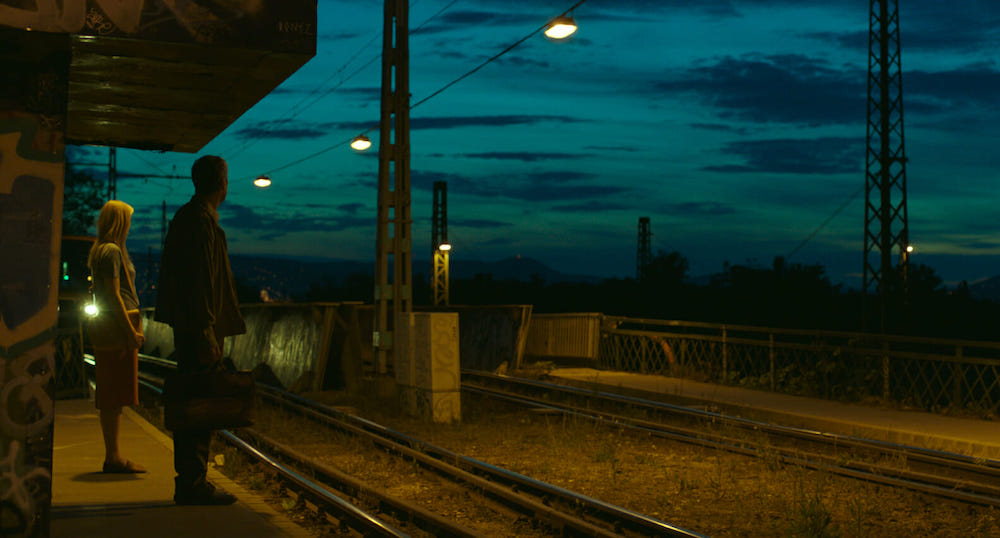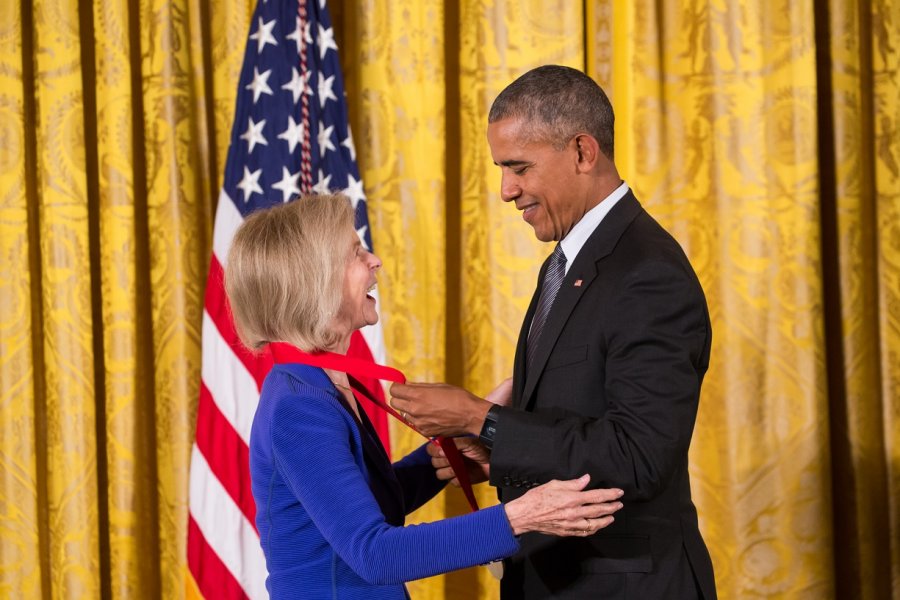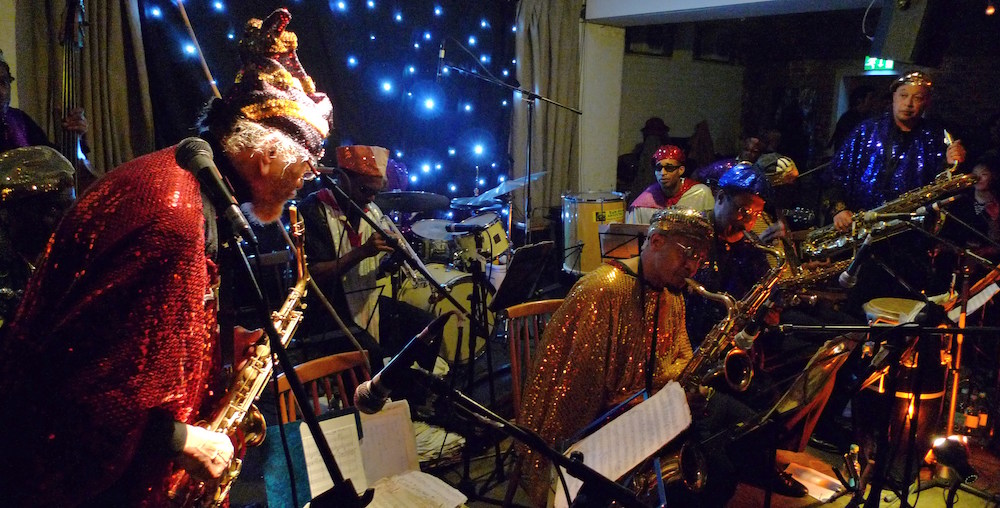“I would like to sleep / with you, to enter / your sleep,” go a few lines from Margaret Atwood’s 1981 poem “Variations on the Word Sleep,” and I recently found myself repeating these to myself as I watched On Body and Soul, the 2017 drama written and directed by the Hungarian filmmaker Ildikó Enyedi. The film—which won the Golden Bear at the 67th Berlin International Film Festival and has recently been released on Netflix—centers on the intense, off-kilter romance between two slaughterhouse employees, Endre and Mária, who discover through a series of work-related mishaps that they in fact share the same dream every night, one in which they appear to each other as deer in the woods. What could have been a twee cinematic disaster—Mária, with her nervous tics, is the sort of female character a lesser director would portray as nothing more than quirky—is saved by the brutality with which Enyedi juxtaposes Endre and Mária’s interactions with cuts of animals being killed, dissected, and turned into something far more sterile than their original bodies. To sleep beside someone requires a certain level of trust, of intimacy, and by the film’s shockingly violent ending, Enyedi successfully explores the dissolution of the self essential to both dreaming and desire. —Rhian Sasseen
I told a coworker about a year ago that I don’t like novels. I was joking, of course, but as with most jokes, the truth lay nestled somewhere within. It’s not so much that I don’t like novels; rather, my mind is a split log with the ax still in it, so I chug through books at the pace of a second grader. I reread sentences compulsively, trying to massage them into the folds of my brain, letting my eyes trace the curl of each letter. Nothing stays, though. Cells die, and so do the words, leaking out of my ears in the dead of night. I spent most of this year as I did the last: chewing on short stories, cowering from anything longer than two hundred pages. But then Jesmyn Ward came along. I know I’m late to join the chorus, but Ward’s 2017 novel, Sing, Unburied, Sing, has singlehandedly revived my passion for novel-length fiction. Simultaneously a ghost story, a road novel, an exploration of grief, a meditation on hereditary trauma, and a reckoning with our country’s cloaked reinventions of slavery, Sing, Unburied, Sing is a masterpiece of moments both epic and minor. There are torchlit pursuits across the wasteland of northern Mississippi, white faces demonic and ravenous in the dying light, but there is also singing in the kitchen, stories parceled out during yard work under the Southern sun, pecans cracked and shared on the porch. The engine driving everything is Ward’s relentless lyricism, curlicuing back on itself, underlining, harmonizing, drawing unexpected resonances. In Ward I’ve found a writer who perfectly mirrors the way I read: carefully, lovingly, obsessively. Next year, more novels. But for now, I need to linger a little longer in Bois Sauvage, Ward’s Yoknapatawpha. I want to hold Pop and Mam and Jojo and Leonie and Given and Kayla and Stag and Richie in my head forever. —Brian Ransom
A ghastly secret lies at the heart of Madhuri Vijay’s stunning debut, The Far Field, and every chapter beckons us closer to discovering it. The narrator, Shalini, is a twenty-four-year-old girl that has been set adrift in the wake of her mother’s death, ambling from job to job and living off of her father’s money. Determined to find closure, she decides to track down the man who haunts her memories of her mother: a storytelling door-to-door salesman named Bashir Ahmed. In search of him, Shalini leaves the comforts of Bangalore for the distant mountain village of Kishtwar, where she’s taken in by a Muslim couple devoted to reuniting families after the years of violence in Kashmir. Shalini is engrossed by the war-torn world that she encounters, struggling to comprehend life under the ubiquitous watch of the Indian army and the unceasing political turbulence between Muslims and Hindus. But despite the trouble she finds in the village, Shalini savors her time there with the couple: “I felt at ease there amongst the objects of their life,” she says. “And sometimes, in the silence, I pretended they were mine.” Such is just one instance of the dangerous naivete that nags at Shalini’s tale, barring her from realizing the devastating weight of her actions until it’s too late. The Far Field chafes against the useless pity of outsiders and instead encourages a much more difficult solution: cross-cultural empathy. —Madeline Day
When I was an undergraduate studying classics and early Christianity, Elaine Pagels became one of my favorite scholars alive. Her outstanding new memoir, Why Religion?: A Personal Story, is something rarely afforded to the devoted followers of academics: a glimpse into their private lives. The title first struck me as a bit obvious—until its sublime appearance within the text in a conversation with her late husband, Heinz Pagels. They were still courting when he challenged her at dinner one night in Cambridge: “Why religion, of all things? Why not something that has an impact in the real world?” That the title came from her husband distills the book’s subject into two words perfectly: both an inquiry into why religion still exists and the story of how Pagels lost both Heinz and her six-year-old son in one year. Her experience with devastating loss enhances her insights into religious thought in ways that scholarship never touched. When a researcher’s personal experiences form a dialectic with their subject matter, great scholarship emerges, even when those experiences remain hidden from the audience. To me, that we can glimpse Pagels’s personal story feels as monumental as the discovery of the scrolls at Qumran or Nag Hammadi. —Ben Shields
The chronology of an evening: Latin American food and Modelo consumed in abundance. I forget my hat and mittens in the restaurant, but it won’t be until much later that I realize my ears and hands are cold. The last of my lip balm pops out of its tube and rolls into the gutter. We stand on the sidewalk on Avenue C, outside the jazz club NuBlu, for half an hour, waiting for someone to arrive. Once inside, my martini arrives soiled by lime juice. Life happens at a familiar pace, until at ten-thirty the set begins and Sun Ra’s Arkestra appears, bedecked in gold and sky blue sequins and outrageous hats, their leader enrobed in satiny vermilion. They hold their instruments like crosiers, a saxophone or trumpet cool against the hot vibrancy of their vestments. The Arkestra was originally conceived and fronted by the great figure of avant-garde jazz Sun Ra, who has been dead twenty-five years now. The group is now under the direction of Marshall Allen, a 94-year-old former sideman of the composer. Sun Ra searched for “a place in space beyond time,” and if the Arkestra’s touring schedule is any indication, they’ve found it. Though many members are long past middle age, the Arkestra has four more concerts this year, one of which will be in Manhattan. Their home base remains unchanged since 1969—a three-story rowhouse in Germantown, Pennsylvania. This ensemble’s sound continues to transport audiences out of everyday consciousness by a joyous cacophony. It absconds into the air with your language; it leaves me able only to turn to the person beside me, trying to open my eyes as wide as possible to convey my desire to take everything in at once. Something strange in this particular club: a documentary projected soundlessly onto one of the walls shows Sun Ra and the Arkestra playing nearly forty years ago. Confusion flashes across the faces of the band as they catch glimpses of their younger selves and a man dead now for a quarter century. The spell of unreality is cracked by this rude intrusion of fact and history. But the Arkestra reclaim their prerogative of breaking boundaries with an old trick: members of the band lead a procession winding offstage, through the crowd, horns blaring, drums tolling, the music of Sun Ra once again reigning over time and space. Out in the cold, the November midnight glows monochromatic gray. The passing moments fall back into their steady marching order. We realize that we’re late to a party, and that I’ll have to return to Alphabet City another day for my gloves. —Lauren Kane
from The Paris Review https://ift.tt/2QL9sXa



Comments
Post a Comment